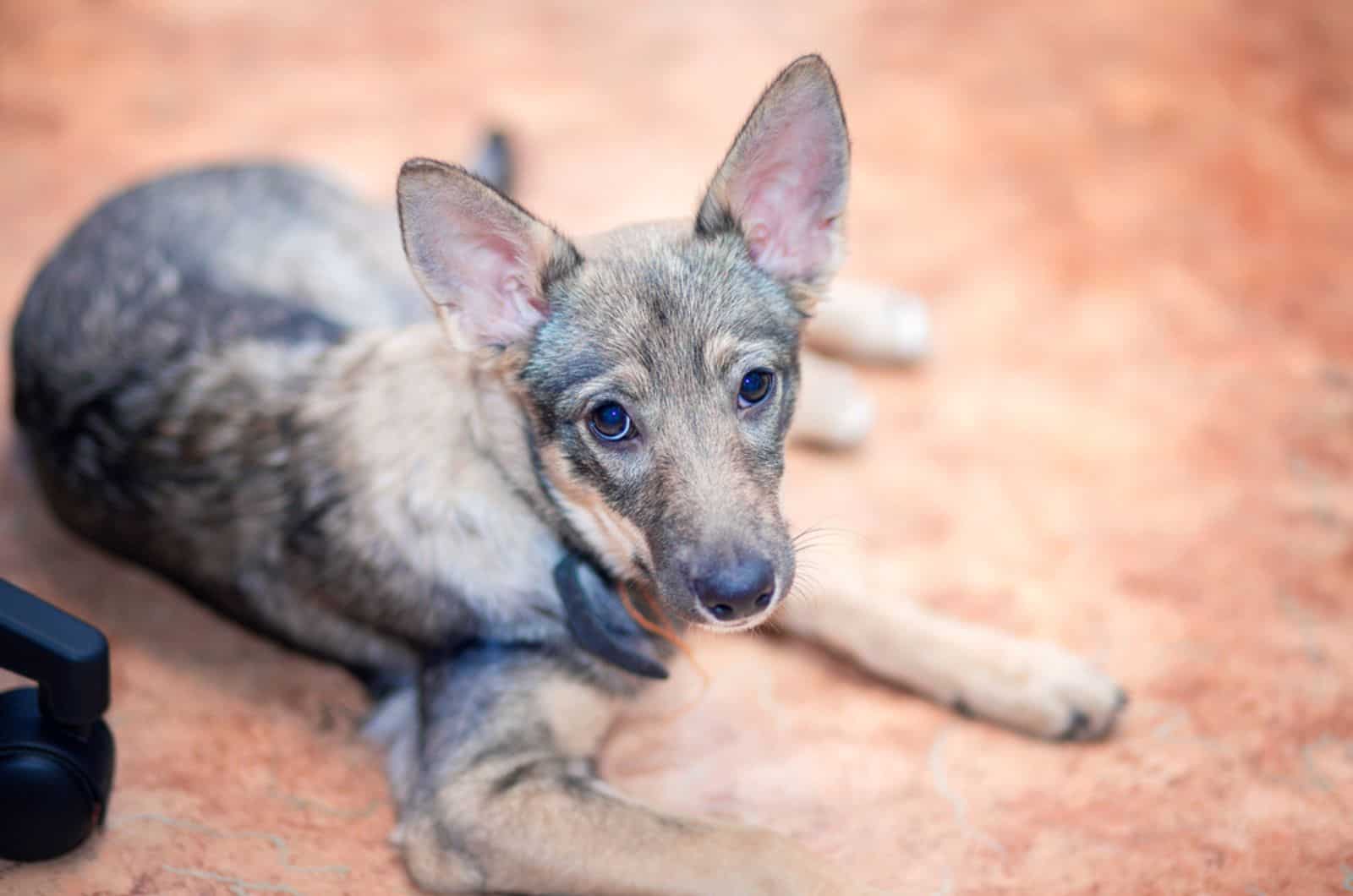Other than the popular cartoon character, Wile E. Coyote, these wild animals are not exactly the hottest topic in the canine world. Whether it is because people mistake them for wolves or due to their not-so-attractive appearance – who can say?
The interesting thing, though, is that there is a plethora of domestic dog breeds that resemble these wild canines in their appearance. They look just like them (or closely like them), and they walk just like them, but they differ in one thing – temperament!
Have you ever actually seen a Coyote-like dog?
No?
Then, now is the perfect time to meet these ten distinguished gentlemen!
#1 The Glorious, One And Only – Czechoslovakian Wolfdog
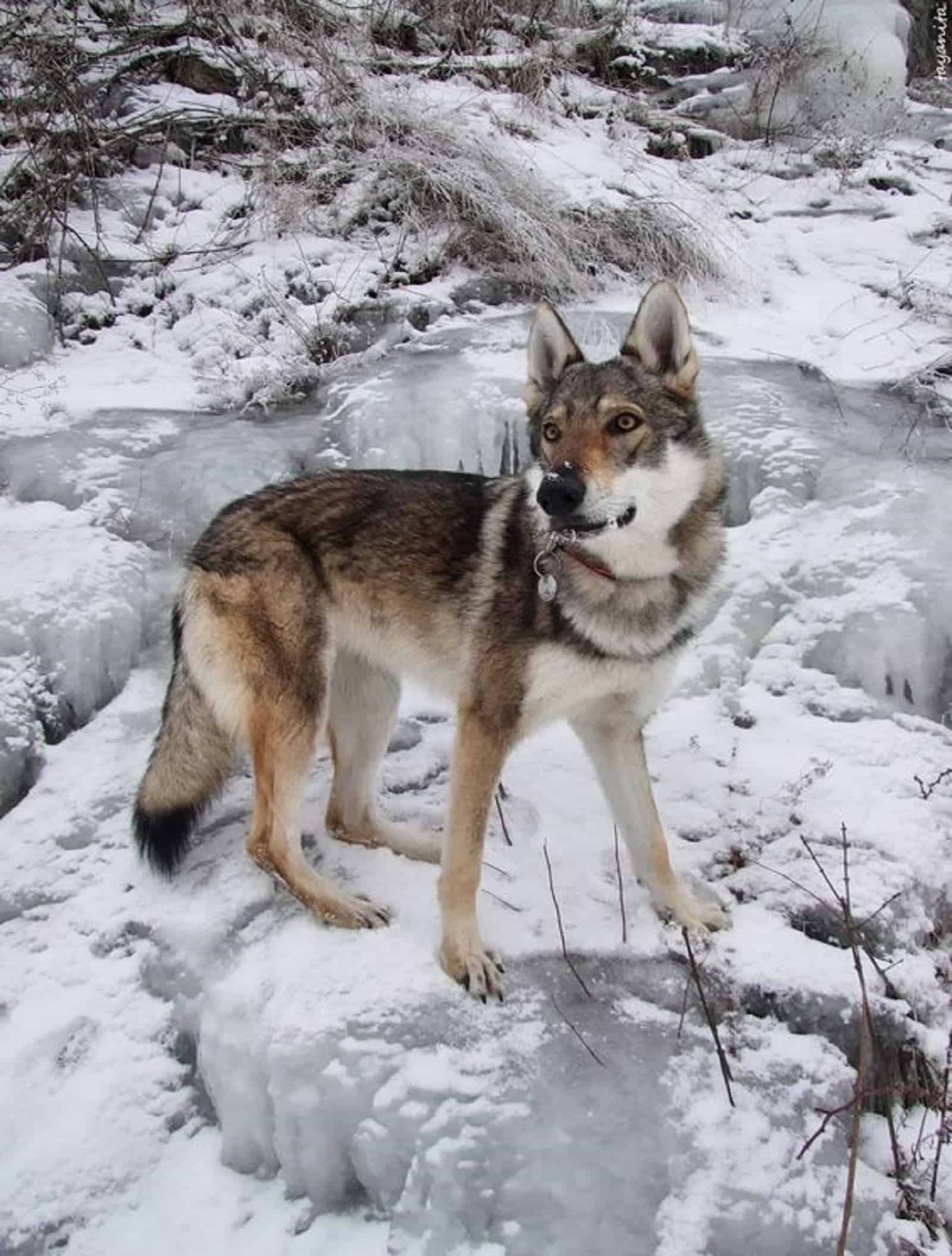
You may not find them on lists of aggressive breeds or friendly breeds, or basically anywhere because the truth is – Czech Wolfies are not exactly the most popular dogs in the world.
In fact, I wouldn’t recommend these dogs to anyone but people with extremely active lifestyles and great deal of experience. The Coyote-like Czech Wolfie is a dominant, at times reserved, and large breed that requires firm leadership.
If you fail to deliver – you might deal with a quite aggressive dog, which is not the most pleasant experience in the world. I mean, after all… they do have a certain wolf gene in their bloodline.
In a way, you might say that the Czechoslovakian Wolfdog, especially the ones that lack socialization, is a true, unrestrained beast.
#2 The Saarloos Wolfdog Is A Close Second
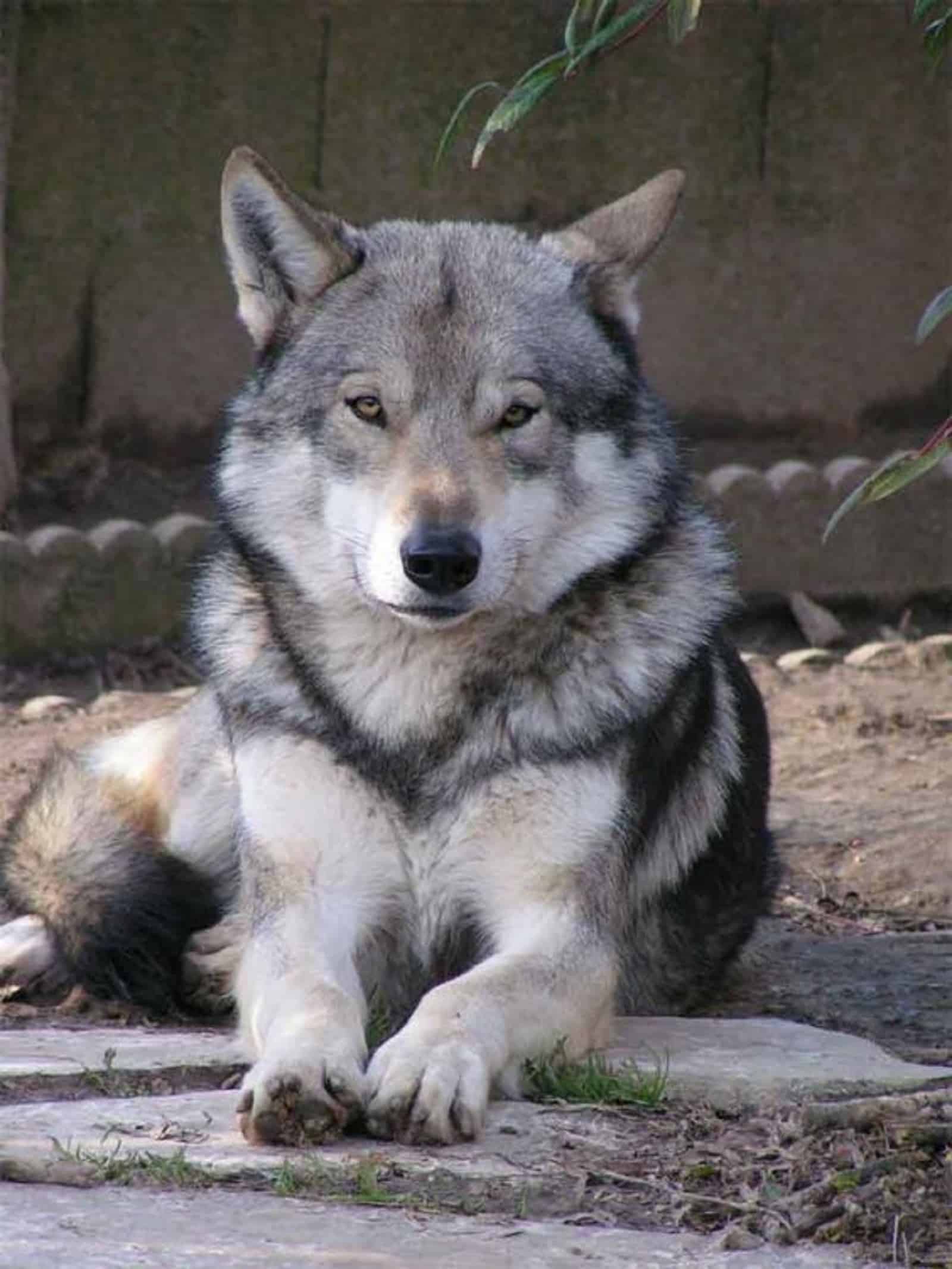
Here comes another half-wolf, half-dog breed! To an untrained eye, it is quite difficult to tell the difference between the aforementioned Czech wolf puppy and this German-Dutch boy.
According to Caniglia et al 1, this puppy was deliberately crossbred between a GSD and a wolf for the sake of “extreme hybridization.” Even though it still remains vigilant and wolf-like, today’s Saarlooses are generally more coyote-like due to their GSD gene.
They appear smaller than the original wolf, but slightly larger than a coyote. If I can describe the temperament of this breed in one sentence, it would be that these pooches are definitely a lot more intelligent and trainable than they initially seem.
Still, just like their Czech counterparts, they require a lot of good work and dedication.
#3 The Siberian Husky Ranks High On The List
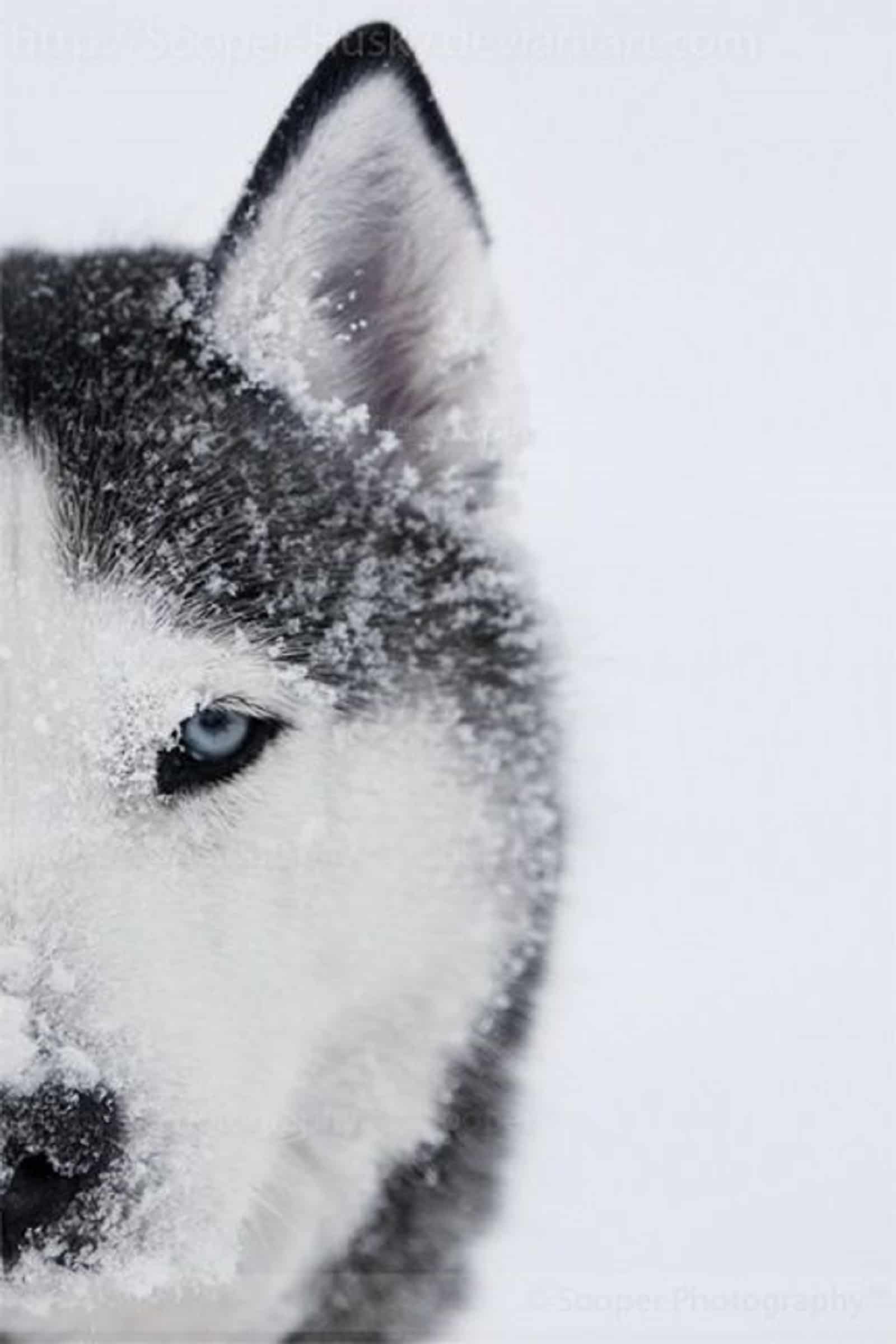
Well, here’s one boy that you must’ve heard about! Am I right?
The truth is that these pooches do indeed resemble coyotes in a way, but if there’s one thing that makes them recognizable in the sea of coyote canines – it’s their famous howling.
The Siberian Husky breed speaks for itself. They are durable, athletic, and strong, even though they might not seem like that at first due to their medium-long double coat.
In fact, considering that Huskies are mostly family dogs these days – you might not see any of that. They will rather fool around and frolic in homes and back yards, even though they were initially bred for work.
The truth is that Huskies are quite hard to tell apart from coyotes, taking into account that both canines are relatively the same size. Still, one thing that makes them different is their eye color.
While Coyotes have brown eyes most of the time, these Siberian pooches are blue-eyed.
#4 Here Comes The American Relative – The Kugsha Dog
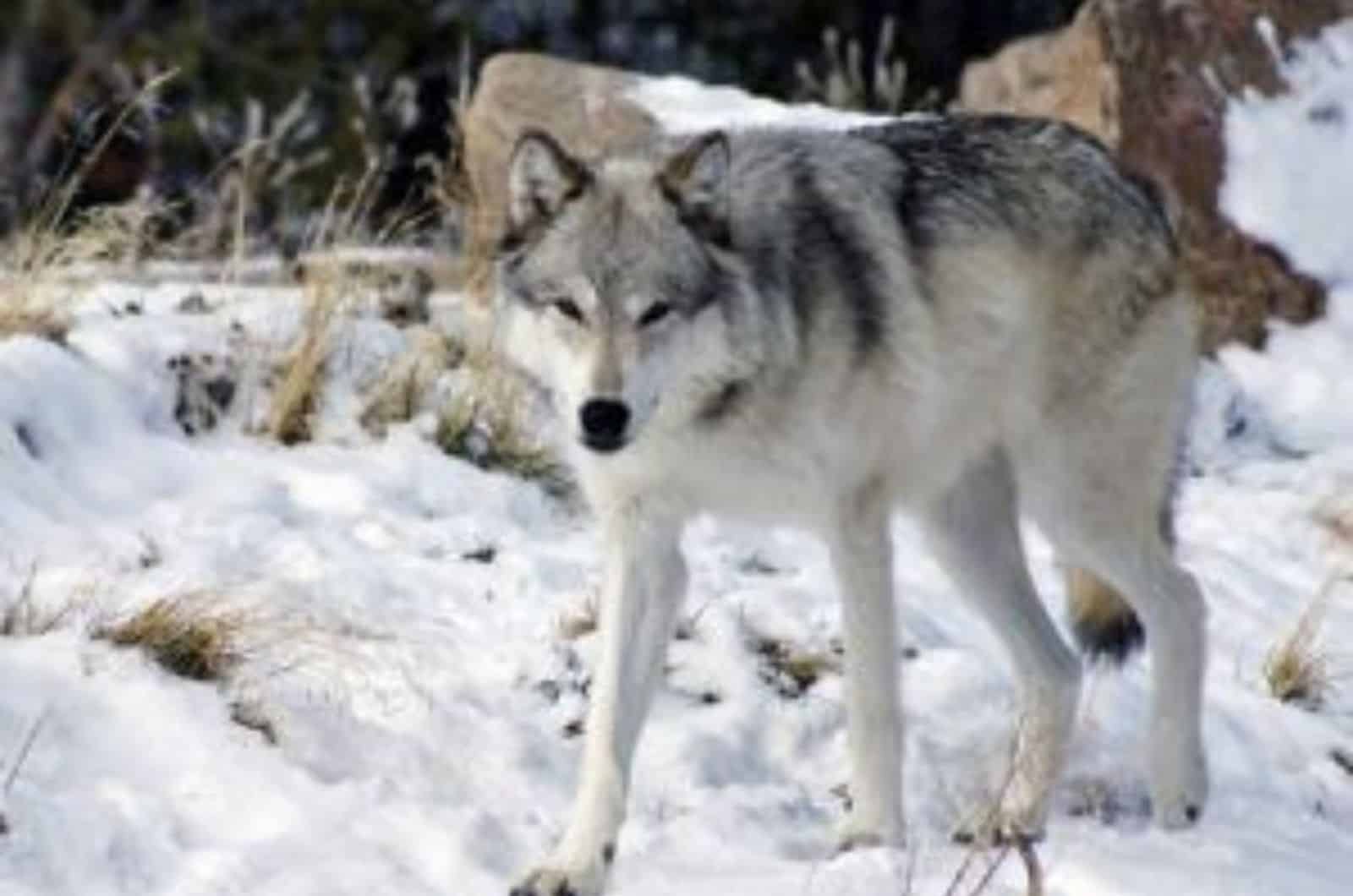
You will probably never find such an affectionate breed with that many wolf genes in its bloodline. But yes, Kugshas are exactly like that!
The interesting thing is that they belong to the group of dogs that look like Huskies because they indeed are another Husky type. The other name for these canines is “American Husky,” which makes them quite exotic.
Unlike wild coyotes, these canines get along with people excellently, and their trainability level is high. In fact, Kugshas are known to be dogs that crave attention and presence, which is why it is not rare for them to develop separation anxiety.
#5 The Unaggressive Wolfie Called – The British Lupine Dog
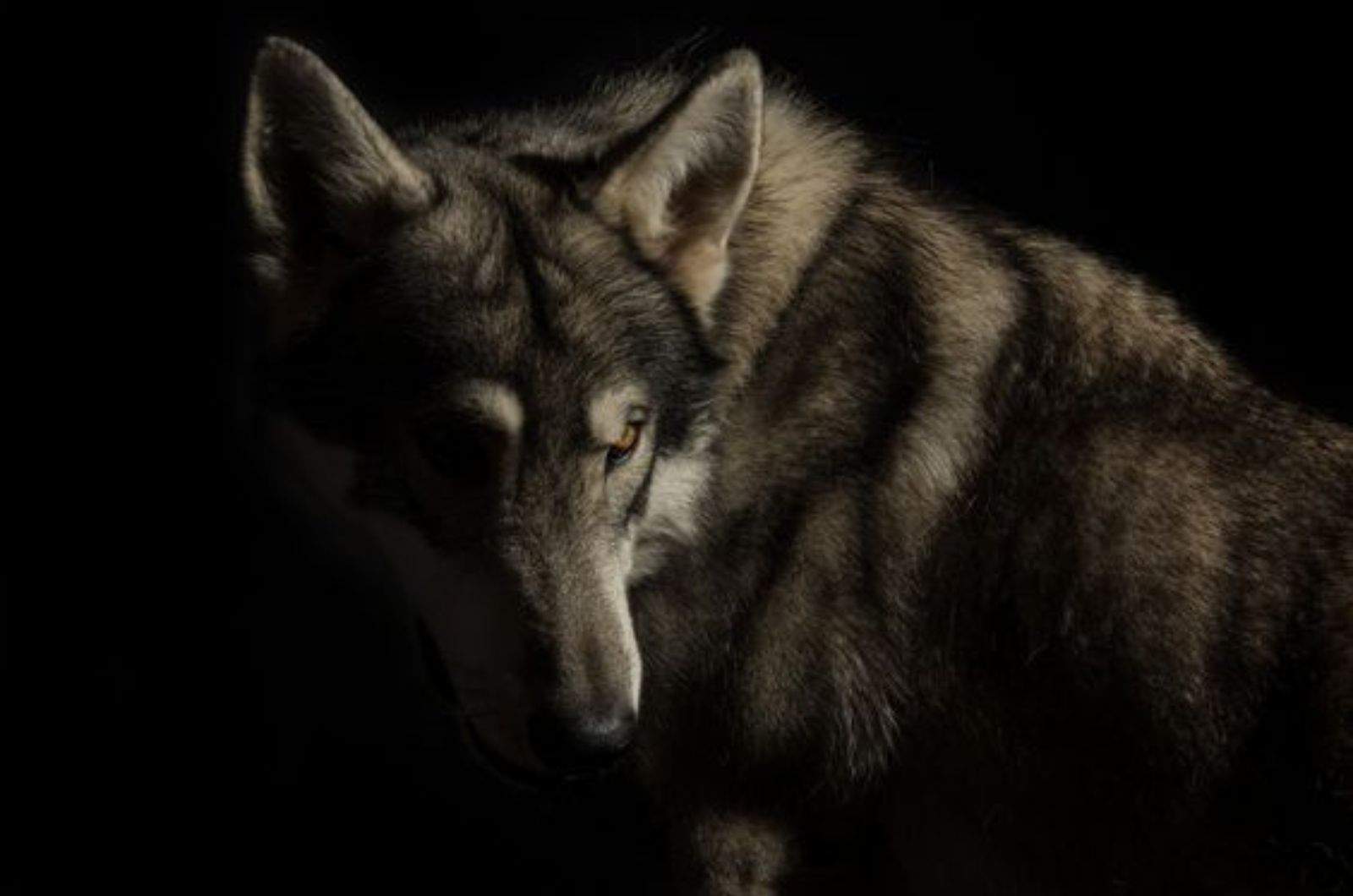
This wonderful dog breed resembles a coyote in shape, but their head is generally wolf-like, according to the World of Lupines Foundation.
Just like their other coyote-like counterparts, these pooches, too, are way beyond other family dogs, strength- and endurance-wise.
Still, the thing that you can distinguish Lupines from the rest is their kind temperament. Yes, they also have a high prey-drive, but a healthy one.
#6 The West Siberian Laika Is Only Interested In Small Game
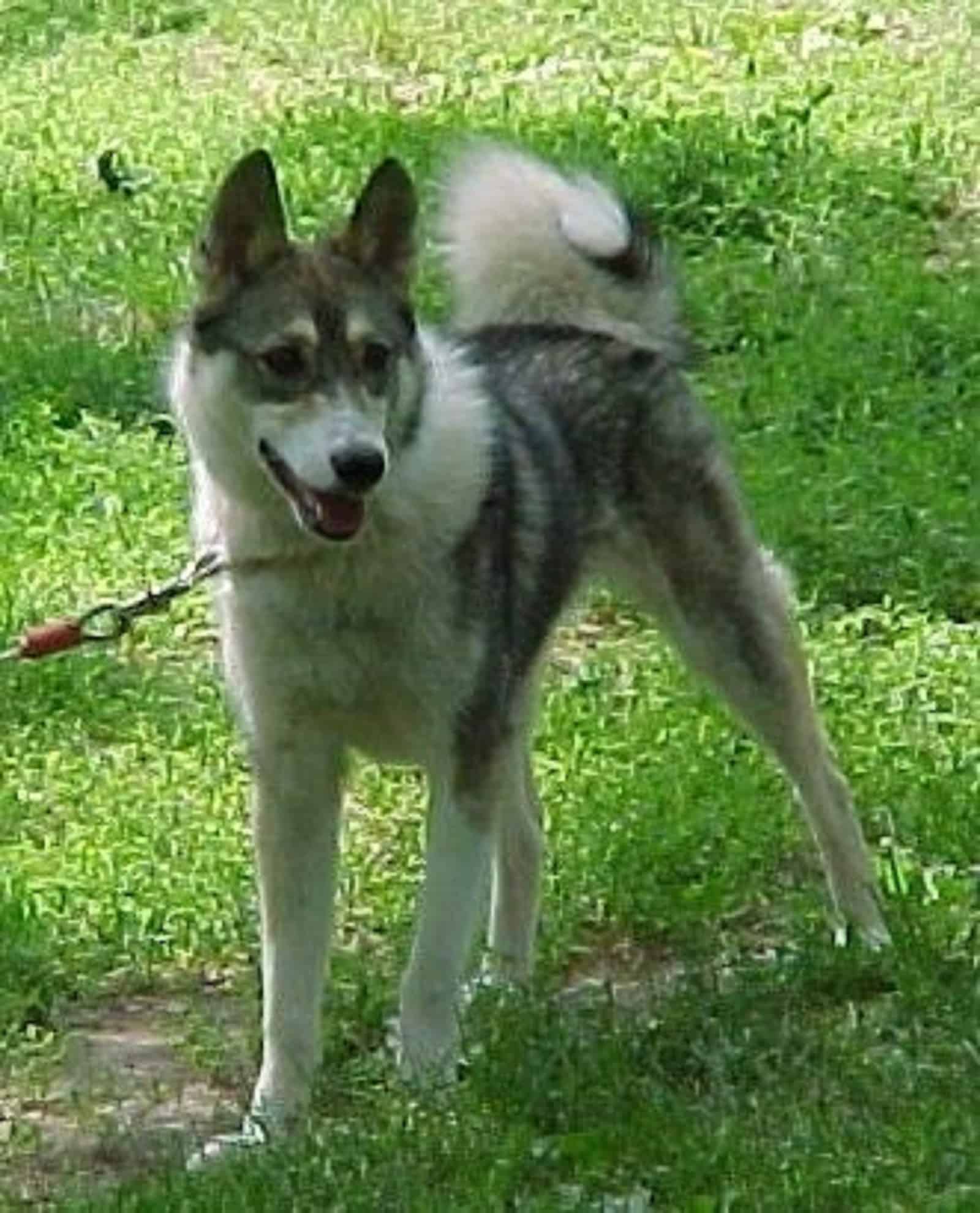
Yes, this, too, is a family dog. And, no… this is not the famous Laika dog that was sent on a space mission in 1957.
Among all Russian dog breeds, the West Siberian Laika is probably the one that resembles coyotes the most. These pooches are generally smaller than the standard Husky, which makes them resemble coyotes in size even more.
However, these doggos are exclusively small-game hunters, which makes them ideal for people with an active lifestyle. Unlike coyotes, they are not bloodthirsty, nor hard to train.
Quite the opposite – West Siberian Laikas are generally affectionate and friendly, even towards strangers. They might be good companions on long, exhaustive hikes, but they sure do not make the best guard dogs.
#7 The Tamaskan Dog Is A Wonderful Worker
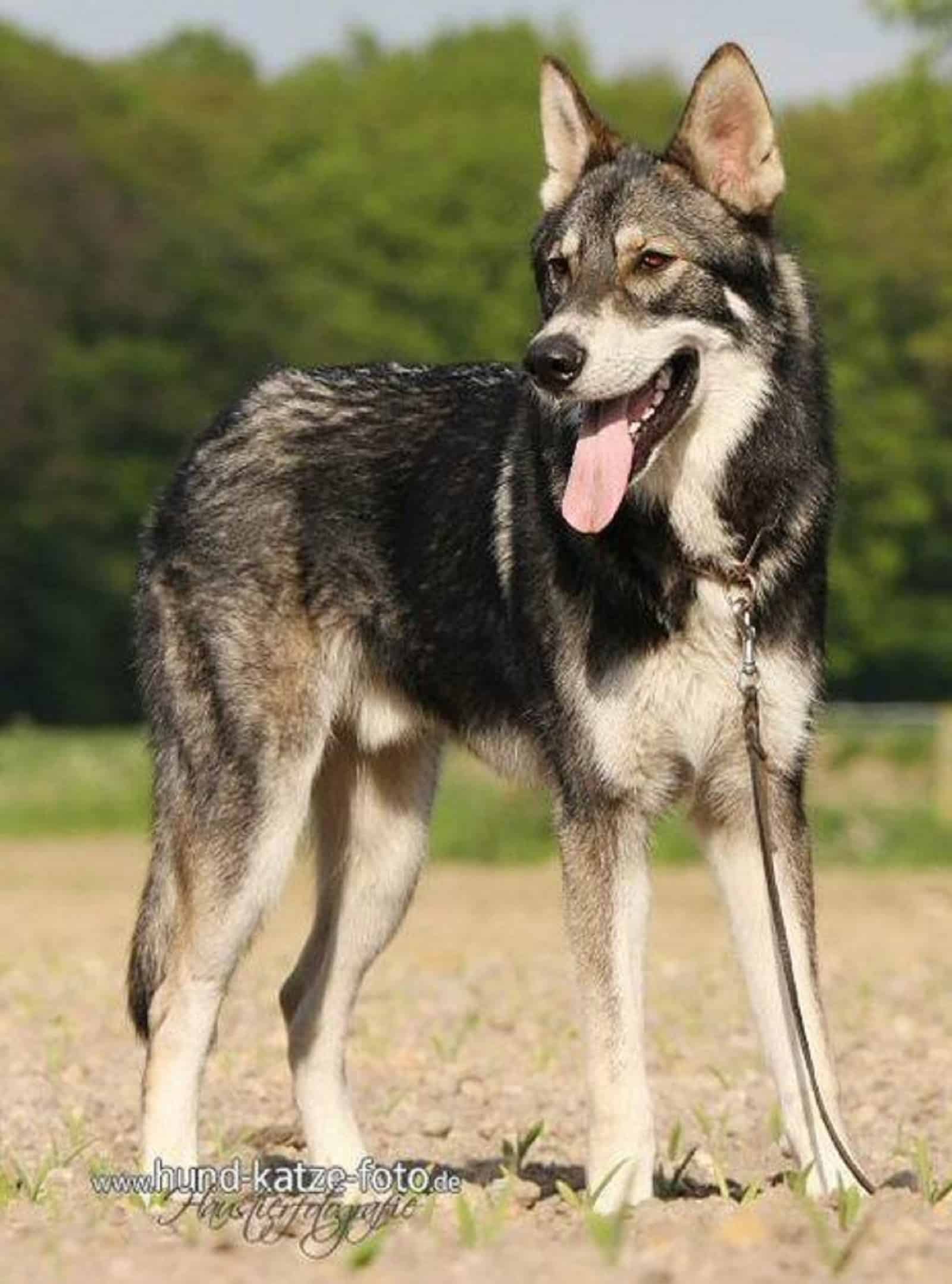
Here comes another wolf-like dog breed. That’s right – Tamaskan puppies generally resemble wolves in their overall appearance (especially in coat and size), but they do have a coyote-like head shape.
Still, unlike coyotes, these beautiful dogs make great family pets. That being said, you can have a Tamaskan puppy as both an indoor and an outdoor dog. They get along with all family members excellently, including children.
Are you thinking about getting this Finnish dog? And, another one besides him? No problem because Tamaskans just love having company!
#8 German Shepherds Win The Game Of Impeccability
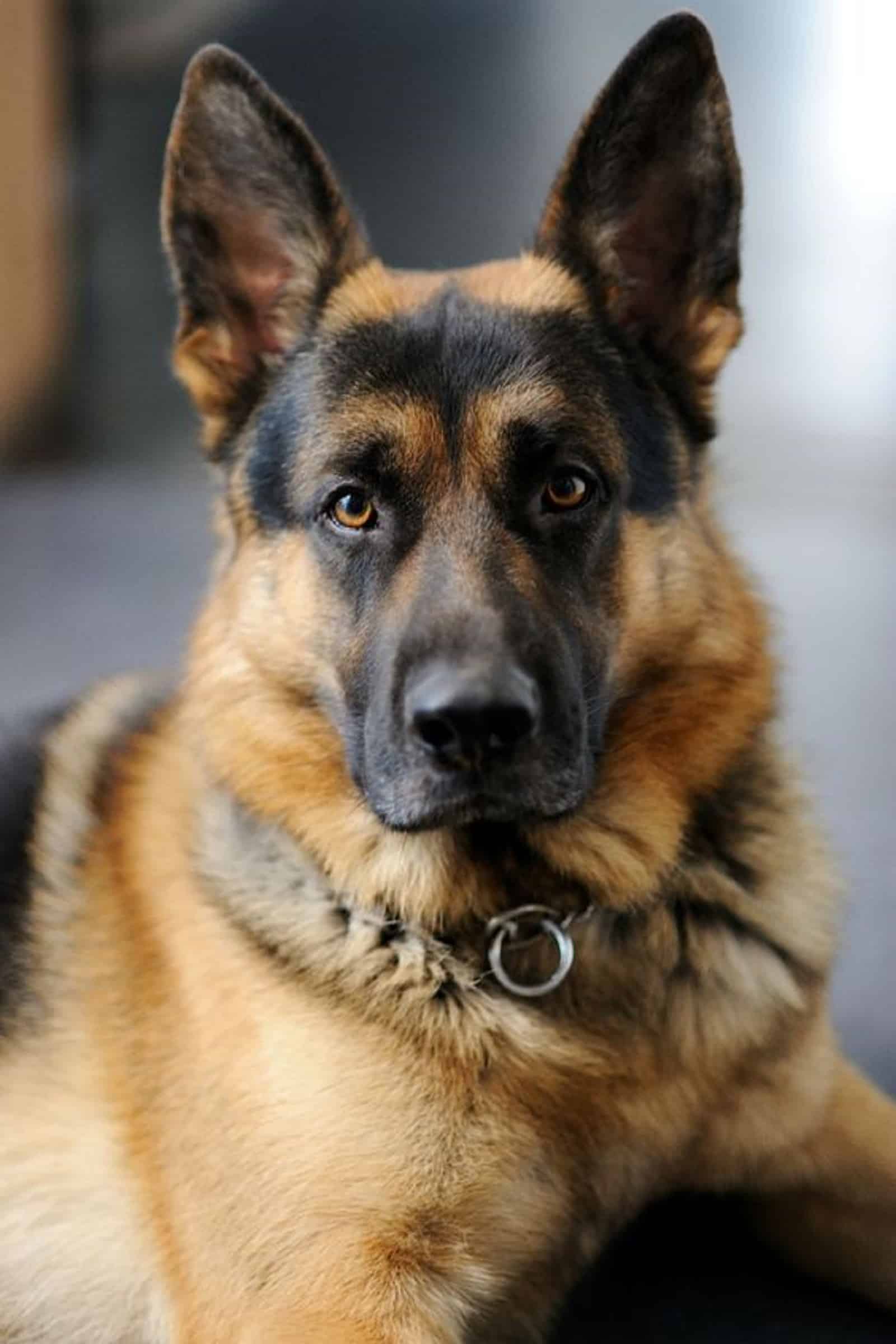
If there’s one category GSDs don’t walk away from as ultimate, complete winners, then it is this one.
Unlike the aforementioned doggos that share over seventy percent of physical traits with coyotes, GSDs can brag about being somewhat the same only from the neck up.
They both have straight, erect ears and an elongated snout. However, the coyotes’ head is significantly smaller and fox-like, which makes it easily separable, even by an untrained eye.
The ultimate disqualification, though, is the fact that GSDs are way smarter. In fact, these pooches are known to be among the smartest breeds in the world, which makes them hard to compare with these wild animals.
Yes, coyotes are smart, too, but are they trainable? Well, to some extent, yes, but that’s nothing in comparison with impeccable GSDs.
#9 If The Coyote Was White And Cute, It Would Be Called A Samoyed
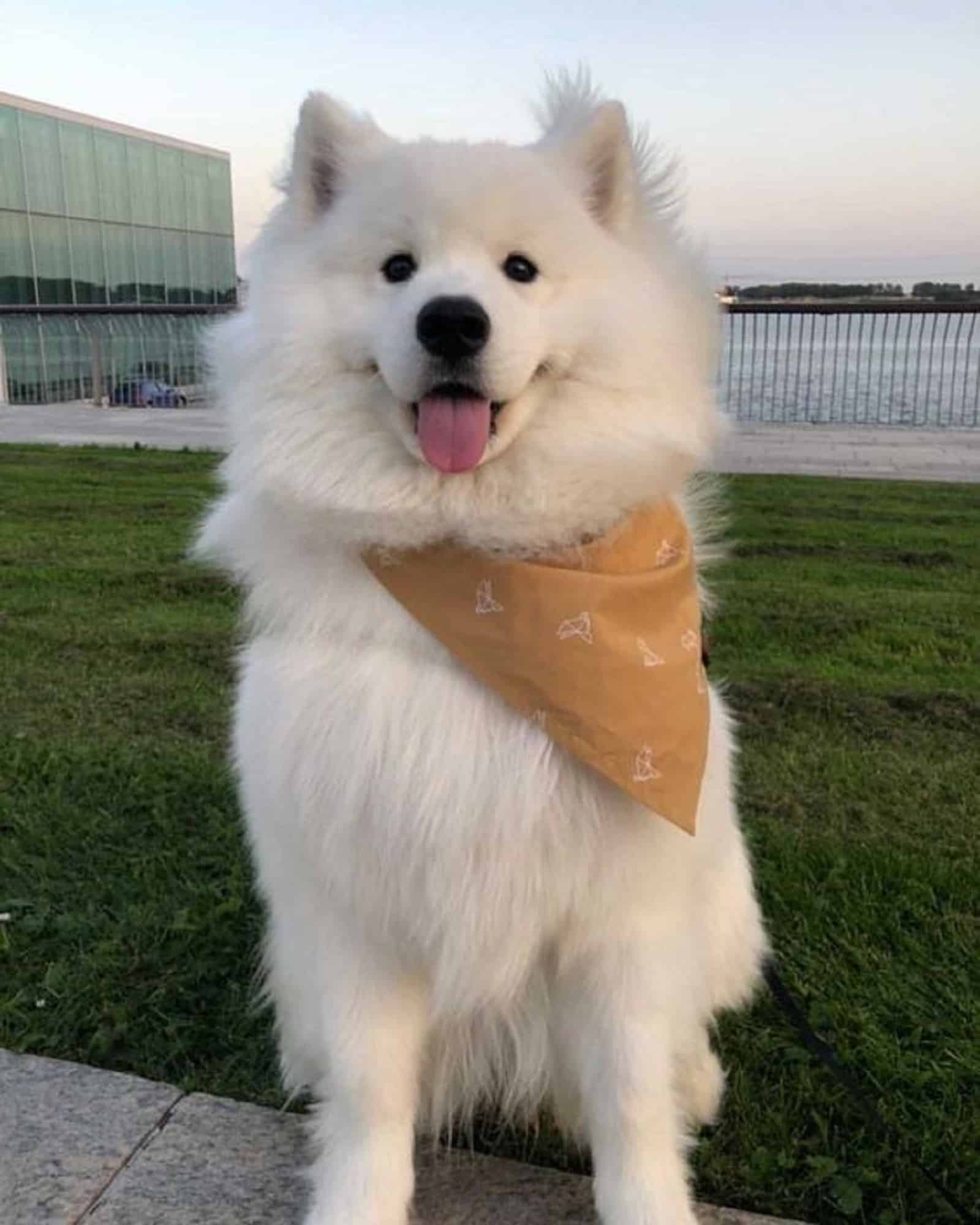
Can you imagine looking at a coyote that has a long, white, double coat? Yes, you have just imagined the Samoyed!
These spitz canines are the perfect resemblance of coyotes, as they share a lot of common physical characteristics. But, do they behave the same?
Well, as long as Samoyeds tend to be mischievous and, at times, self-destructive, we still cannot perceive them as similar. Quite the opposite – Samoyeds are way too gentle and friendly to be seen as wild and dangerous.
Both male and female canines tend to be highly adaptable, even to families with small children.
#10 The Utonagan May Be Coyote-Like, But It Has The “Spirit of A Wolf”
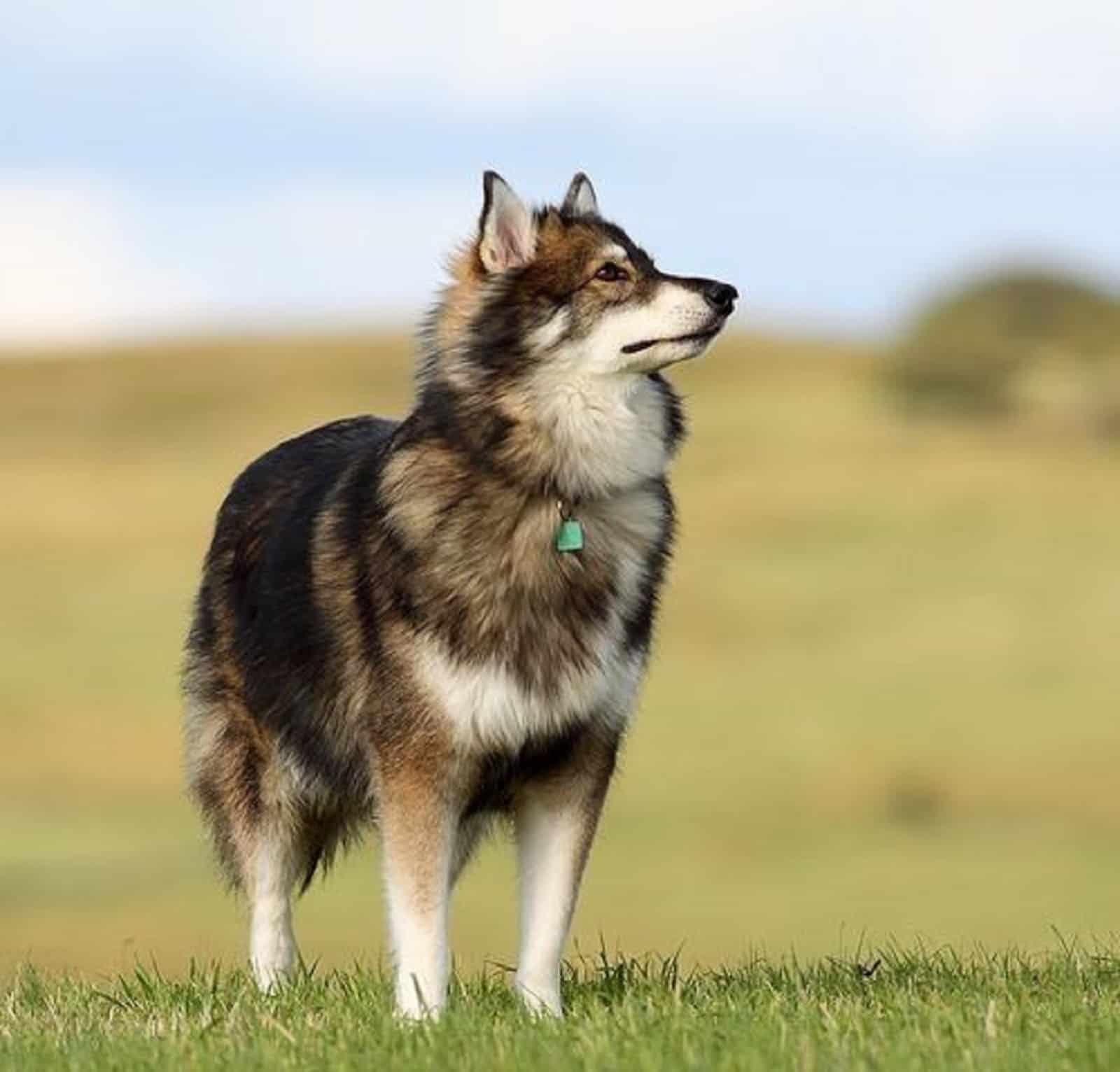
According to Stavinohova 2, Utonagan canines belong to the group of dogs that derived from the NID (Northern Inuit Dogs) in the 1980s. The original purpose behind their breeding was to design a decent worker with great physical features.
That said, Utonagan canines are as strong and as durable as coyotes, and they indeed almost look the same. The only difference, though, is that Utonagans have a much longer coat, with white patches on their chest.
Their name, Utonagan, derives from the Indian people, meaning “the spirit of the wolf dog.” Still, even though their head resembles a wolf, and their body resembles a coyote – these pooches are far from being wild.
They make quite decent family dogs. They are adaptable and kind, and when properly socialized, they can be excellent companions of children, too.
Summing It Up
As much as I would love to list all the dogs that, to some extent, resemble coyotes – it seems like mission impossible.
The truth is there are dozens of coyote-like, mostly hybrid canines whose origin and DNA is vague to this day, which is why it is hard to track them down.
These ten doggos make a pretty good list that gives insight into what it is like to have a coyote-like dog. Or, a coyote, for that matter. Still, my honest advice is to stick to the first one!
Read more: 16 Dogs That Look Like Pitbulls – Similarities And Differences
References
- Caniglia, R., Fabbri, E., Hulva, P., Bolfíková, B.Č., Jindřichová, M., Stronen, A.V., Dykyy, I., Camatta, A., Carnier, P., Randi, E., Galaverni, M. (2018). Wolf Outside, Dog Inside? The Genomic Make-Up Of The Czechoslovakian Wolfdog. BMC Genomics. DOI
- Stavinohova, R., Hartley, C., Burmeister, L.M., Ricketts, S.L., Pettitt, L., Pont, R.T., Hitti, R.J., Schofield, E., Oliver, J.A.C., Mellersh, C.S. (2019). Clinical, histopathological and genetic characterisation of oculoskeletal dysplasia in the Northern Inuit Dog. Plos One. DOI
